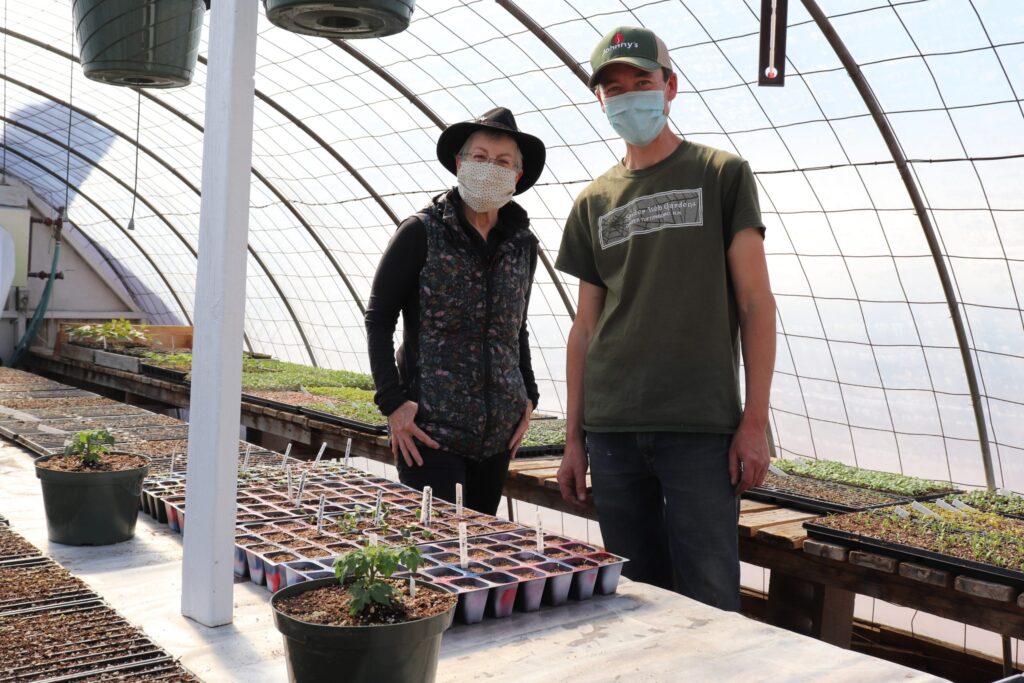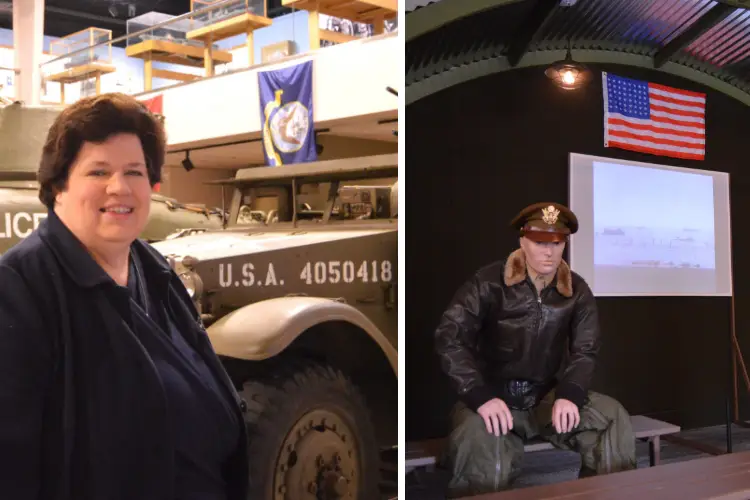The spring is a busy time for museums as staff prepare to open for the warmer months, an operational challenge faced by Wright Museum volunteer and UNH Carroll County Advanced Master Gardener Christin Kaiser. “I prepare seed trays every spring for the Wright Museum’s Victory Garden,” said Kaiser, who noted she has built a partnership through the years with Spider Web Gardens in Tuftonboro. “This works out well all around, as they look after and care for our seed trays during this time of year until they are ready to bring to the garden,” she added.
According to Executive Director Mike Culver, the museum’s Victory Garden pays homage to a sometimes forgotten aspect of World War II. “Victory Gardens boosted morale, expressed patriotism and protected against food shortages on the home front,” he said. By 1944, an estimated 20 million victory gardens produced approximately 8 million tons of food. “Produce grown in our Victory Garden has benefited the local food pantry, too, so there is a strong community aspect to it,” he said.
As for the growing process at Spider Web Gardens, Adam Stockman, who bought the business from his uncle in 2019 with partner Jacinda Montague, said the trays begin on a heated table in their seed house. Upon germination, seeds are gradually moved to cooler conditions — first to the edges of the seed house and then to a glass greenhouse. “This process grows a strong plant, ready for the garden,” he said.
Citing the spring as “an incredibly busy season” with both time and space at a premium, Stockman expressed appreciation for Kaiser’s expertise and preparation. “It helps immensely that the Wright Museum’s seed trays are properly prepared, including a sterile growing medium, and that a proper seeding technique is used,” he said. “Once her trays are dropped off here, they respond like our own and they do not introduce any pests or bacteria to our operation.”

Regarding what will be grown in the Wright Museum’s Victory Garden this season, Kaiser cited what one might find in a backyard garden, including tomatoes (3 types), lettuces, kale (2 types), sprouting broccoli, onions, shallots and garlic. The garden will also feature a representation of vegetables grown by Japanese Americans interned in isolated ‘camps.’ Some of these vegetables will include Japanese cabbages (Late Nagasaki, Golden Beauty, Green and Purple Bok Choi), Umaina Japanese chard and Black Futsu, an edible skin winter squash. “We will also have two types of heirloom greens — Chijimai, and pink Mizuna,” she added. “I’ll have several six-packs of these for a raffle and for sale at my May lecture where I will speak on plants grown in these camps.”
This year’s Victory Garden will additionally include a medicinal-Herbal Tea section. “Many families at home as well as in the camps grew herbs for tea and Chicory roots for coffee replacement,” said Kaiser, who said Baker Creek Heirloom Seeds in Missouri donated the majority of the Asian vegetables. “We are very grateful for their support and our partnership with Spider Web Gardens.”




